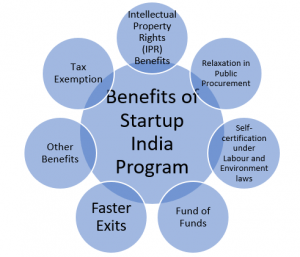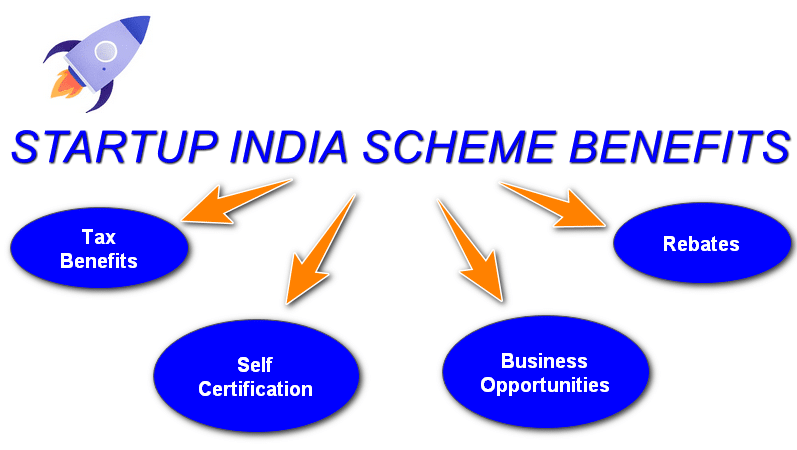Startup India is a revolutionary program launched by the Indian government to promote entrepreneurship and foster a culture of innovation. This initiative has been a game-changer, providing a supportive ecosystem for startups to thrive. In this article, we will delve into the impact of Startup India on entrepreneurship and explore the use of active voice in the business landscape.
Table of contents
The Role of Startup India

Startup India offers a wide array of benefits to new ventures, including tax exemptions, funding opportunities, and a simplified registration process. These incentives serve as catalysts for young entrepreneurs, making it easier for them to bring their ideas to life. The government’s commitment to nurturing startups is evident in the policies and support systems it has put in place.
Empowering Entrepreneurs
One of the standout features of Startup India is how it empowers entrepreneurs. By providing financial assistance and mentorship programs, the government plays a crucial role in helping startups take their first steps. Success stories from entrepreneurs who have benefited from these programs are inspiring testaments to the effectiveness of this initiative.
Challenges and Opportunities

While entrepreneurship in India is on the rise, it is not without its challenges. Startups often face obstacles such as lack of funding, intense competition, and regulatory hurdles. However, Startup India provides them with opportunities to overcome these challenges. The support offered includes tax breaks and access to a vast network of industry experts.
Challenges:
- Lack of Funding: One of the primary challenges for startups in India is the difficulty in securing adequate funding. Access to capital, especially at the early stages of a startup’s development, can be limited. Banks and traditional financial institutions are often hesitant to lend to startups due to their high-risk nature.
- Intense Competition: The Indian market is highly competitive, with numerous players vying for market share across various industries. Startups often find themselves up against well-established competitors, which can make it challenging to gain a foothold and differentiate themselves.
- Regulatory Hurdles: India has a complex regulatory environment that can be particularly daunting for startups. Navigating through bureaucratic red tape, complying with various regulations, and dealing with tax complexities can be time-consuming and costly.
- Talent Acquisition: Attracting and retaining skilled talent can be a challenge for startups, especially when they are competing with larger, more established companies. Startups often have limited resources to offer competitive salaries and benefits.
| Challenges | Opportunities |
| Lack of Funding | Startup India Initiative |
| Difficulty in securing funding | Tax benefits for recognized startups |
| Limited access to capital | Improved ease of doing business |
| Hesitancy of banks and institutions | Access to a vast network of experts and mentors |
| Government funding support (Fund of Funds) | |
| Intense Competition | Incubators and Accelerators |
| Highly competitive market | Mentorship, infrastructure, and investor access |
| Established competitors | Enhanced chances of success |
| Differentiation challenges | |
| Regulatory Hurdles | Global Outreach |
| Complex regulatory environment | Encouragement to explore global markets |
| Bureaucratic red tape | Support for international expansion |
| Compliance and tax complexities | Diversification of revenue streams |
| Talent Acquisition | |
| Attracting and retaining skilled talent | |
| Competition with larger companies | |
| Limited resources for competitive salaries |
Conclusion
Startup India has played a pivotal role in boosting entrepreneurship in India. The government’s unwavering support and the many benefits it offers to startups have contributed to a thriving entrepreneurial ecosystem. In addition, active voice is a powerful communication tool that empowers entrepreneurs to convey their ideas with confidence and vigor.
In a country brimming with innovation and talent, Startup India is the beacon that guides aspiring entrepreneurs on their journey to success.
Readmore:
How Entrepreneurship Has Contributed to Society
Which One is Not the Barriers of Entrepreneurship?
Which of the Following Factors Influence Entrepreneurship?
Which of these Statements Best Describes the Context for Entrepreneurship?
Frequently Asked Questions (FAQs)
To register your startup with Startup India, visit their official website and follow the registration process outlined there. Ensure that you meet the eligibility criteria and have the necessary documents ready.
Startup India offers various tax benefits, including a three-year tax holiday and exemptions from capital gains tax. These incentives aim to reduce the financial burden on startups during their initial years.
Yes, foreign entrepreneurs can also benefit from Startup India, provided they meet the eligibility criteria. The program encourages innovation and entrepreneurship regardless of the entrepreneur’s nationality.
Startup India has led to significant job creation in India. Startups often hire skilled professionals and create employment opportunities, contributing to the country’s economic growth



